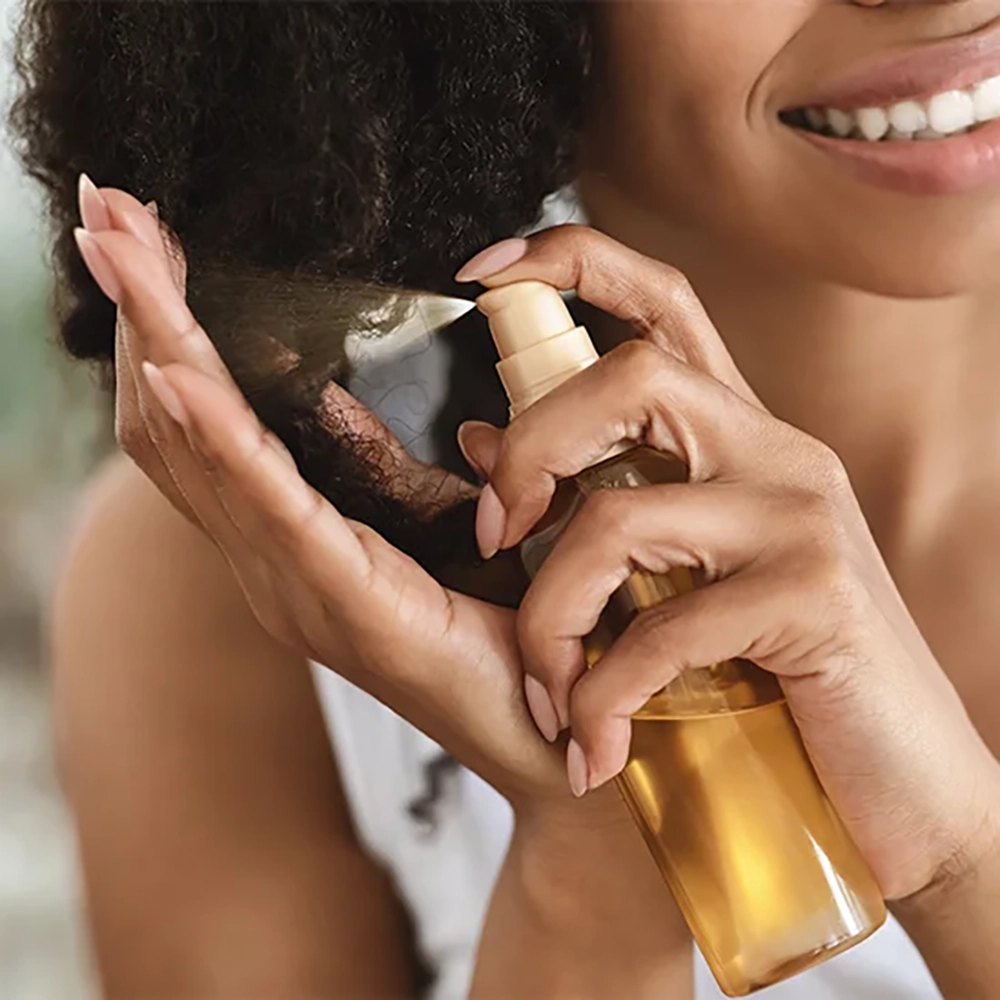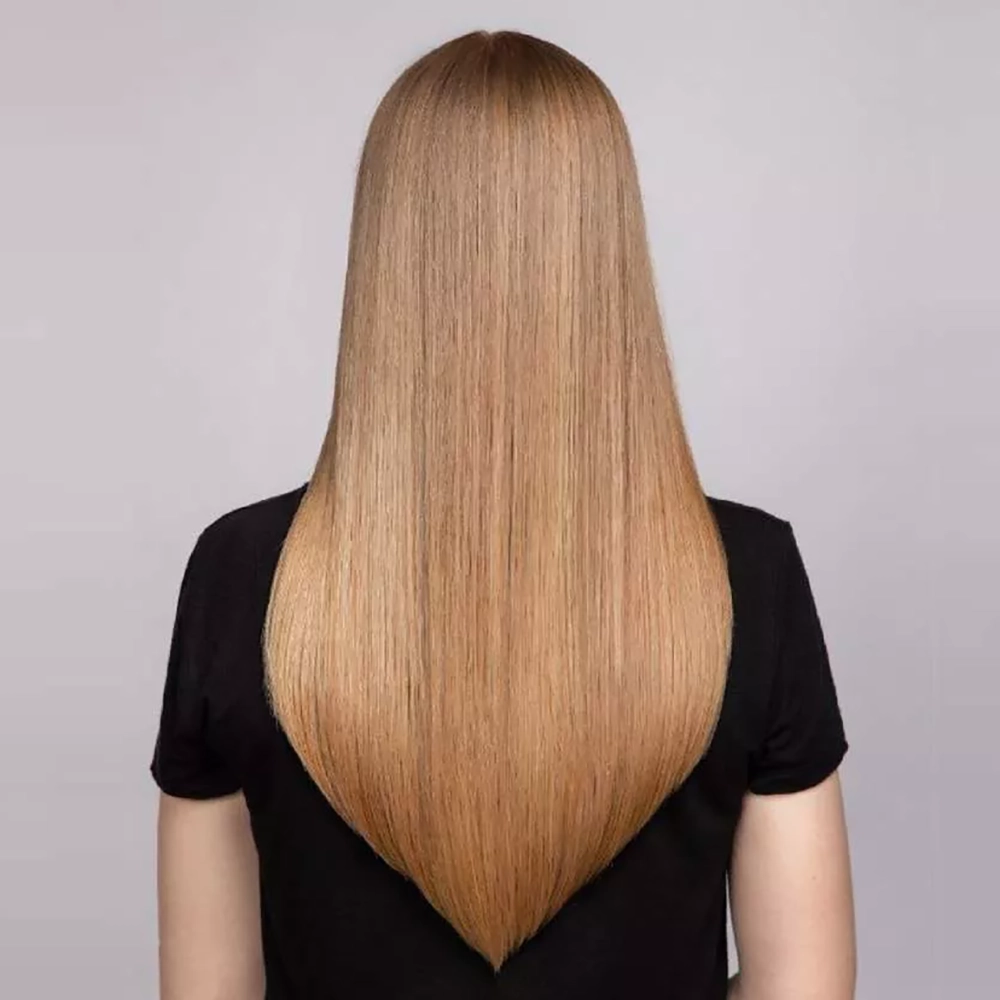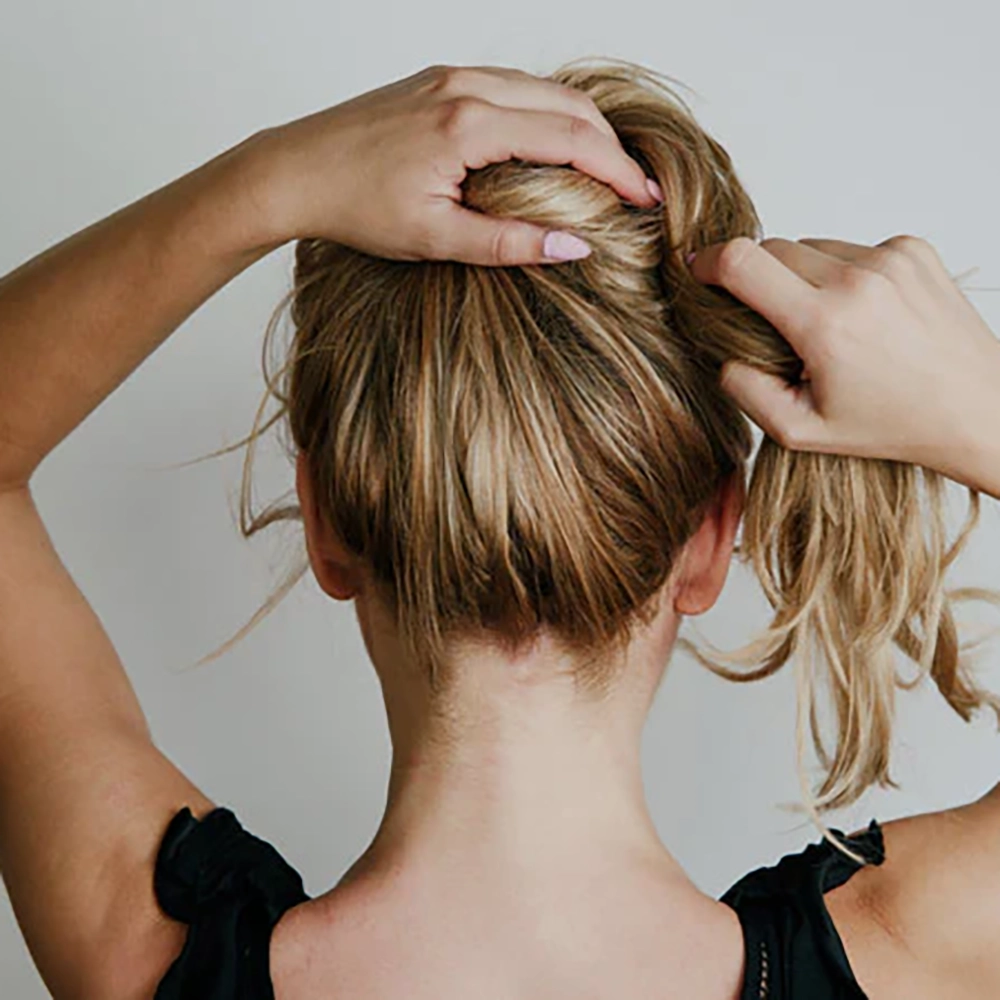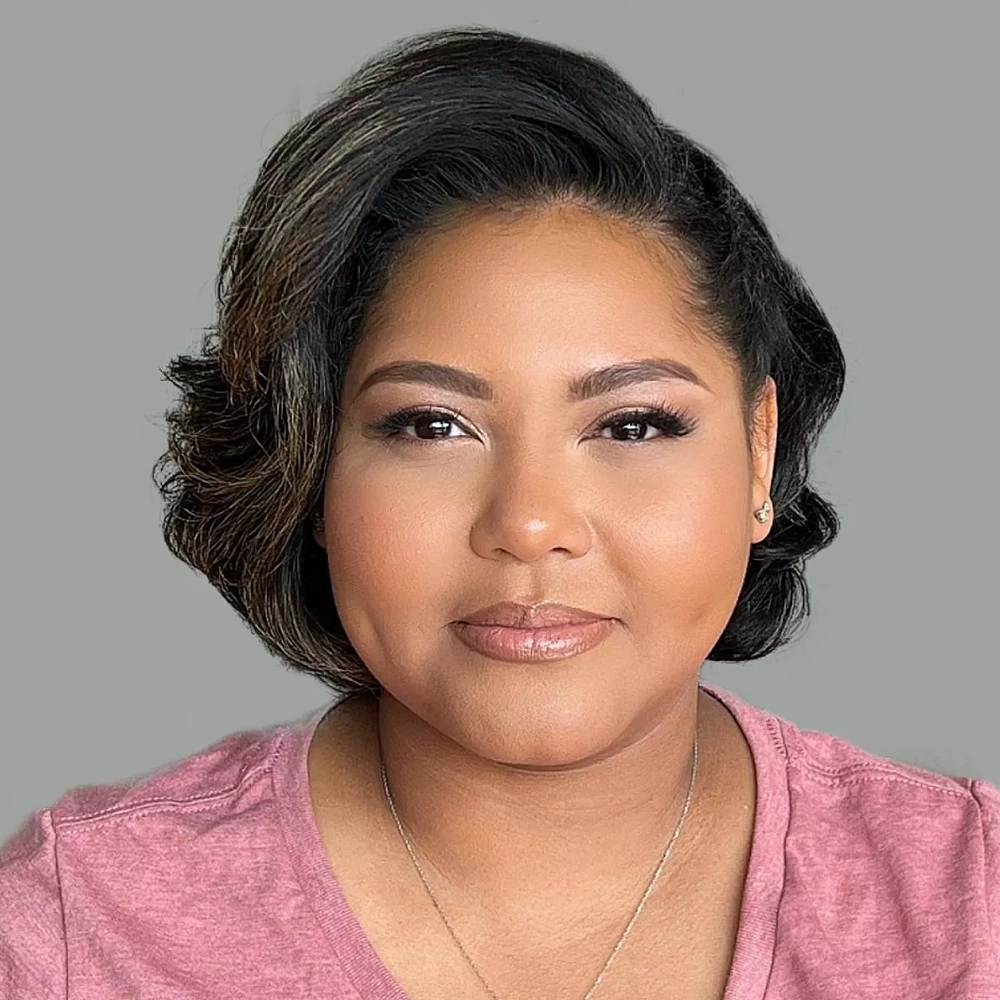Understanding the science behind hair growth
Have you ever wondered how your hair grows and why some people have thick, luscious locks while others struggle with thin, brittle hair? Understanding the science behind hair growth can help demystify this process and provide valuable insights into how to promote healthy hair growth.
The Hair Growth Cycle – Hair growth is a continuous process that occurs in cycles. Each hair strand goes through a growth phase, known as anagen, followed by a rest phase, called telogen. During anagen, the hair follicle actively produces new cells, resulting in hair growth. This phase typically lasts between two to eight years and determines the maximum length of your hair. After anagen, the follicle enters the telogen phase, which lasts for about two to four months. At the end of telogen, the old hair falls out, and a new growth cycle begins.
Factors Affecting Hair Growth – Various factors influence the rate and quality of hair growth. Genetics play a significant role in determining hair thickness, density, and growth patterns. Hormones, such as estrogen and testosterone, also influence hair growth. For example, higher levels of testosterone can lead to increased body and facial hair growth in men. Additionally, age, overall health, and nutritional deficiencies can impact the hair growth cycle.
Promoting Hair Growth – While genetics and internal factors cannot be entirely controlled, there are steps you can take to promote healthy hair growth. A balanced diet rich in essential vitamins and minerals, such as vitamin C, vitamin E, iron, and biotin, can provide the necessary nutrients for hair development. Incorporating essential oils for hair growth into your haircare routine can also be beneficial. These oils, including lavender, rosemary, and peppermint, have been traditionally used to stimulate hair follicles, improve blood circulation, and prevent hair loss.
| Essential Oil | Properties | Best for |
|---|---|---|
| Lavender | Calming, promotes scalp health | All hair types |
| Rosemary | Stimulates hair growth, improves thickness | Thinning hair |
| Peppermint | Cooling, enhances blood circulation | Dry scalp, hair loss |
Conclusion – Understanding the science behind hair growth empowers you to make informed decisions about your haircare routine. While genetics and internal factors play a significant role in hair growth, adopting a healthy lifestyle, incorporating essential oils, and providing adequate nutrition can support optimal hair growth. With a better understanding of the hair growth cycle and the factors influencing it, you can take proactive steps towards achieving healthy, vibrant hair.
Exploring different essential oils for hair growth
When it comes to hair growth, many people turn to essential oils as a natural and effective solution. Essential oils have been used for centuries for their various therapeutic properties, and they are especially renowned for their ability to promote hair growth. In this blog post, we will explore different essential oils that are beneficial for hair growth and discuss their specific properties and benefits.
1. Lavender oil: Known for its calming and soothing properties, lavender oil is not only great for relaxation but also for hair growth. It has been found to stimulate hair follicles and promote new hair growth. Additionally, it can help balance the scalp’s natural oil production, preventing excessive dryness or oiliness that can hinder hair growth.
2. Rosemary oil: Rosemary oil is known for its ability to stimulate blood circulation, including to the scalp. Improved blood flow to the hair follicles can promote hair growth and prevent hair loss. It also has antioxidant properties that help neutralize free radicals, which can damage the hair follicles and hinder growth.
3. Peppermint oil: Peppermint oil is known for its cooling and refreshing sensation, and it can also benefit hair growth. It stimulates the scalp, encouraging blood flow and follicle activity. This increased activity can lead to stronger and thicker hair growth. Peppermint oil also has antimicrobial properties, which can help maintain a healthy scalp and prevent any potential infections.
Exploring different essential oils for hair growth allows you to find the best one that suits your needs and preferences. Each essential oil offers unique benefits, so it’s worth experimenting with different oils to see which one works best for you. Whether you choose lavender oil, rosemary oil, peppermint oil, or any other essential oil, remember to dilute it properly before use and perform a patch test to ensure you don’t have any adverse reactions. Achieve luscious, healthy hair by incorporating the power of essential oils into your hair care routine.
The benefits of using essential oils for hair growth
When it comes to hair growth, there are several factors that can affect the health and appearance of our hair. From genetics to environmental factors, it can be a challenge to maintain strong and vibrant hair. One natural remedy that has gained popularity in recent years is the use of essential oils. Essential oils are highly concentrated plant extracts that have been used for centuries for their various therapeutic properties. In this blog post, we will explore the benefits of using essential oils for hair growth
Using essential oils for hair growth has gained popularity due to their potential to improve the overall health of the scalp and stimulate hair follicles. These oils can help to promote blood circulation in the scalp, reduce inflammation, and provide nourishment to the hair follicles, which may result in healthier and stronger hair. Additionally, essential oils have antimicrobial properties that can help to combat scalp conditions such as dandruff and fungal infections, which can inhibit hair growth.
One of the major benefits of using essential oils for hair growth is their ability to provide deep moisturization to the scalp and hair strands. The oils penetrate the hair shaft, providing hydration and reducing breakage and split ends. This can result in longer and thicker hair over time. Some essential oils, such as lavender and rosemary, have been shown to have a calming effect on the scalp, reducing stress and promoting healthy hair growth.
- Aloe vera oil: Aloe vera oil is known for its soothing properties and can be effective in reducing scalp inflammation and promoting hair growth.
- Peppermint oil: Peppermint oil has a cooling effect and can help to improve blood circulation in the scalp, promoting hair growth.
- Jojoba oil: Jojoba oil closely resembles the natural oils produced by our scalp, making it an excellent moisturizer for both the scalp and hair.
| Essential Oil | Benefits |
|---|---|
| Lavender oil | Calms and soothes the scalp, promotes hair growth |
| Rosemary oil | Stimulates hair follicles, reduces hair loss |
| Cedarwood oil | Improves circulation, strengthens hair follicles |
It is important to note that essential oils are highly concentrated and should not be used directly on the scalp or hair. They should always be diluted with a carrier oil, such as coconut oil or almond oil, before application. Additionally, it is recommended to perform a patch test on a small area of skin before using any new essential oil to check for any potential allergic reactions.
In conclusion, the benefits of using essential oils for hair growth are numerous. From promoting blood circulation and reducing inflammation to providing deep moisturization and combating scalp conditions, essential oils can be a natural and effective solution for those looking to improve the health and growth of their hair. However, it is always important to do thorough research, consult with a healthcare professional, and take necessary precautions before incorporating essential oils into your hair care routine.
Proper application techniques for maximum effectiveness
Proper application techniques are crucial when using essential oils for hair growth to ensure maximum effectiveness. The way you apply the oils can greatly impact their ability to penetrate the scalp and stimulate hair follicles. Here are some key techniques to keep in mind:
1. Dilution: Essential oils are highly concentrated and can cause skin irritation if applied directly. It is important to dilute them with a carrier oil before application. A common dilution ratio is 2-3 drops of essential oil per tablespoon of carrier oil.
2. Scalp Massage: Massaging the oils into your scalp helps to increase blood circulation and stimulates the hair follicles. Use your fingertips to gently massage the oil mixture onto your scalp in circular motions for 5-10 minutes.
3. Steam Treatment: To enhance the absorption of essential oils, try incorporating steam into your hair care routine. Apply the diluted oil mixture to your scalp, cover your head with a shower cap, and wrap a warm towel around it. The heat and steam will help the oils penetrate deeper into the scalp.
4. Leave-In Treatment: For longer-lasting effects, consider leaving the oil mixture on your scalp overnight. This allows more time for the oils to work their magic. Remember to protect your pillowcase with a towel or use a shower cap to avoid any oily stains.
By following these proper application techniques, you can ensure that you are getting the maximum effectiveness out of the essential oils for hair growth. Remember to always do a patch test before applying the oils to your scalp and consult with a healthcare professional if you have any concerns or allergies.
Potential side effects and precautions when using essential oils
Essential oils have gained popularity in recent years for their potential benefits in promoting hair growth. While these natural oils can be effective in improving the health of your hair, it is important to know that there are potential side effects and precautions associated with their use. It is crucial to understand these to ensure safe and effective application of essential oils for hair growth.
One important consideration when using essential oils is their concentration. Essential oils are highly concentrated plant extracts, and using them undiluted can cause skin irritation or other adverse reactions. It is recommended to always dilute essential oils with a carrier oil, such as coconut, jojoba, or almond oil, before applying them to the scalp or hair. This helps to minimize the risk of skin sensitivity and irritation.
Another potential side effect of essential oil use is allergic reactions. Some individuals may have allergies to specific plants, and using their essential oils can trigger an allergic response. It is essential to perform a patch test before using any new essential oil. Apply a small amount of diluted oil to a small area of skin, such as the inner forearm, and wait for 24 hours to check for any signs of allergic reactions like redness, itching, or swelling.
Additionally, it is important to be cautious when using essential oils during pregnancy or while breastfeeding. Not all essential oils are safe for use during these periods, as they can penetrate the skin barrier and potentially affect the fetus or the nursing baby. It is advisable to consult with a healthcare professional or an aromatherapist before using essential oils if you are pregnant or breastfeeding.
Combining essential oils with other natural remedies
Combining Essential Oils with Other Natural Remedies
When it comes to promoting hair growth and maintaining healthy locks, many people turn to essential oils as a natural solution. These potent extracts from plants are known for their various therapeutic properties and have been used for centuries in traditional medicine. While essential oils alone can be beneficial for hair growth, combining them with other natural remedies can amplify their effects.
Listed below are some popular natural remedies that can be combined with essential oils to enhance their effectiveness:
- Aloe Vera: Derived from the aloe vera plant, this gel-like substance is rich in vitamins and minerals that promote hair growth. When mixed with essential oils, such as lavender or rosemary, aloe vera acts as a carrier and helps to deliver the oils deeper into the scalp.
- Coconut Oil: Known for its moisturizing properties, coconut oil can nourish the hair and prevent breakage. When combined with essential oils like peppermint or tea tree oil, coconut oil creates a potent mixture that stimulates hair follicles and promotes healthy hair growth.
- Castor Oil: Castor oil is renowned for its ability to strengthen hair and prevent hair loss. When used in combination with essential oils such as cedarwood or thyme, it can enhance the nourishing properties of the oils and provide a boost to hair growth.
Additionally, certain herbal extracts, such as green tea or saw palmetto, can also be combined with essential oils to support hair growth. Green tea is packed with antioxidants that help to stimulate the hair follicles, while saw palmetto is known for its ability to block the hormone responsible for hair loss.
| Natural Remedy | Benefit |
|---|---|
| Aloe Vera | Enhances oil absorption into the scalp |
| Coconut Oil | Moisturizes and nourishes the hair |
| Castor Oil | Strengthens hair follicles |
| Green Tea | Stimulates hair growth |
| Saw Palmetto | Blocks hair loss-causing hormone |
Combining essential oils with these natural remedies provides a holistic approach to hair growth. While essential oils provide the therapeutic properties and stimulate the hair follicles, the natural remedies act as supportive elements, nourishing the hair and scalp. However, it is important to remember that everyone’s hair is unique, and what works for one person may not work for another. It is advisable to do a patch test and consult a healthcare professional before incorporating any new natural remedies into your hair care routine.
Success stories and real-life experiences with essential oils for hair growth
Using essential oils for hair growth has become a popular natural remedy in recent years. Many people claim that these oils have helped them achieve thicker, longer and healthier hair. In this blog post, we will delve into the success stories and real-life experiences of individuals who have tried essential oils for hair growth.
One success story comes from Sarah, a 35-year-old woman struggling with thinning hair. After years of trying different products and treatments without success, she decided to give essential oils a try. Sarah applied a mixture of rosemary and lavender essential oils to her scalp every night before bed. Within a few months, she noticed significant improvement in the thickness and volume of her hair. She was amazed by the results and continues to use essential oils as part of her hair care routine.
Another real-life experience comes from Michael, a 42-year-old man who suffered from a receding hairline. He had tried various medications and treatments recommended by professionals but was disappointed with the lack of results. Feeling desperate, Michael decided to experiment with essential oils. He used a blend of peppermint and cedarwood essential oils on his scalp twice a day. After several months, he noticed new hair growth along his hairline and was thrilled with the outcome.
| Name | Age | Essential Oils Used | Results |
|---|---|---|---|
| Sarah | 35 | Rosemary, Lavender | Thicker, fuller hair |
| Michael | 42 | Peppermint, Cedarwood | New hair growth along hairline |
These success stories highlight the potential benefits of using essential oils for hair growth. While everyone’s experience may vary, it is clear that essential oils have the potential to promote healthier hair. It is important to note that essential oils should be used properly and in the right proportions. Always consult with a healthcare professional before incorporating essential oils into your hair care routine, especially if you have any existing scalp conditions or allergies.




































